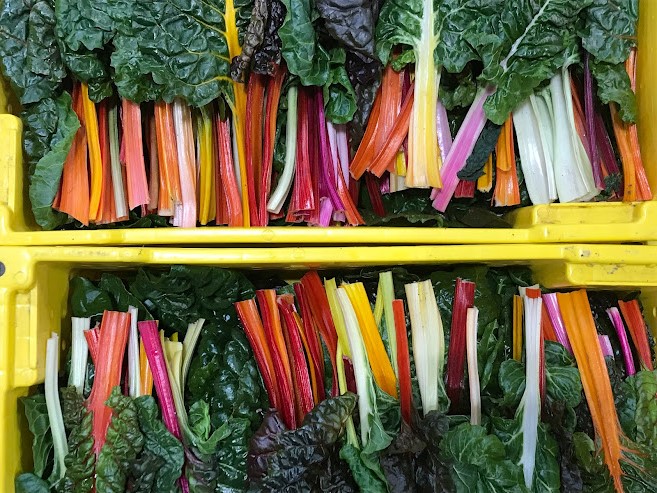BFN refines food sourcing and food safety standards to uphold the dignity of our members and partners. Keep reading to learn more.
The mainstream food assistance model relies on sourcing cheap packaged foods and conventional produce at the very end of its nutritional lifespan. It is a high-calorie, low-nutrition framework whose success is measured in pounds distributed. Heavy foods are prioritized over lighter foods with more nutrients (think cans of pork and beans versus leafy greens). Consequently, this model focuses primarily on keeping people full, not full and healthy. It also proves to be harmful to our environment. The conventionally-grown produce commonly distributed through traditional food banking relies on a petroleum-heavy agricultural model contributing to an unhealthy landscape.
At BFN we strive to provide the highest quality and freshest foods possible to our community while engaging in sourcing practices that are environmentally and ethically sound. We must ensure our community has access to food and that the items we distribute are cared for in a way that aligns with the standards we expect from grocery stores and restaurants. Being food insecure does not mean you deserve unsafe or mishandled food.
We are excited to share that we recently implemented more robust sourcing standards and a food safety program to ensure the integrity and quality of our food. We aim to have equal or higher standards than retail or food service operations!
Rigorous sourcing and food safety standards will help us uphold the dignity of our pantry users and partner organizations that shop with us. Those we serve include folks from vulnerable populations, such as frontline workers, who often experience barriers to adequate healthcare. This means that maintaining the integrity of the food we distribute is all the more critical. Our community already struggles to afford healthy groceries. They should not also have to worry about the quality and safety of the food they get from us.
By Jonathan Kitchens, Senior Supply Chain Manager
